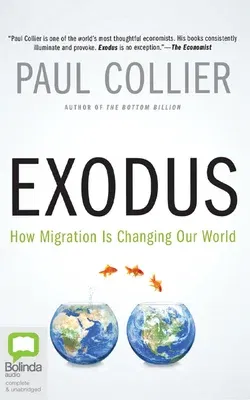It is one of the most pressing and controversial questions of our time
-- vehemently debated, steeped in ideology, profoundly divisive. Who
should be allowed to immigrate and who not? What are the arguments for
and against limiting the numbers? We are supposedly a nation of
immigrants, and yet our policies reflect deep anxieties and the quirks
of short-term self-interest, with effective legislation snagging on
thousand-mile-long security fences and the question of how long and
arduous the path to citizenship should be.
In Exodus, Paul Collier, the world-renowned economist and bestselling
author of The Bottom Billion, clearly and concisely lays out the
effects of encouraging or restricting migration. Drawing on original
research and case studies, he explores this volatile issue from three
perspectives: that of the migrants themselves, that of the people they
leave behind, and that of the host societies where they relocate.
Immigration is a simple economic equation, but its effects are complex.
Exodus confirms how crucial it will be that public policy face and
address all of its ramifications. Sharply written and brilliantly
clarifying, Exodus offers a provocative analysis of an issue that
affects us all.

